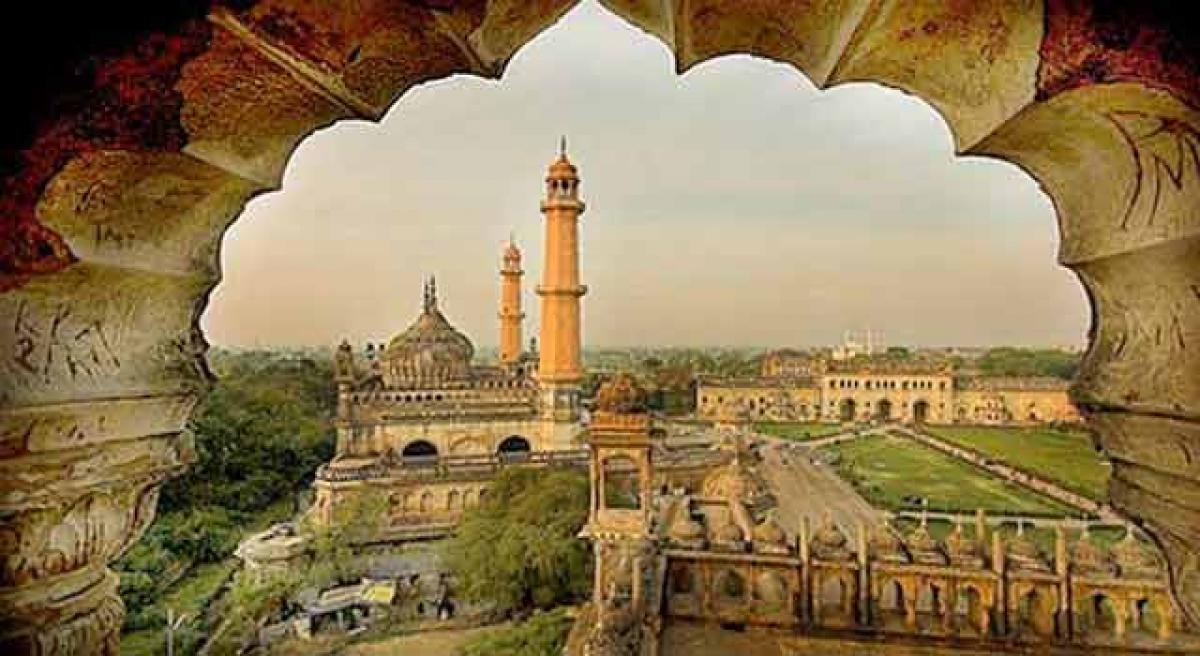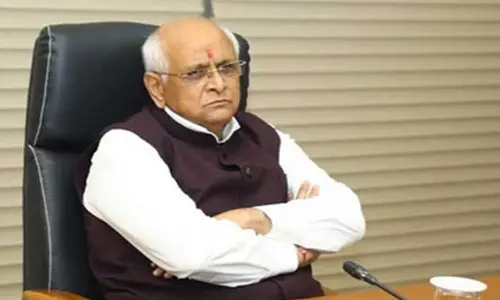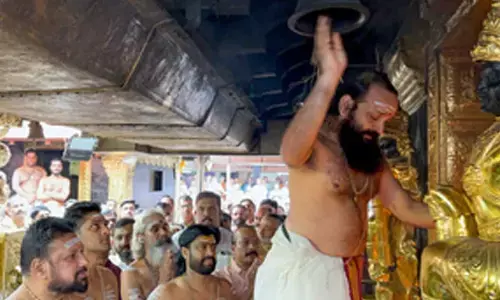Lucknow's oblivious Urdu shayar?

Poets can be divided into two broad categories - those who are sometime, somewhere influenced by the world outside and \'prosaic\' concerns like politics, or at least reference what is happening,
Poets can be divided into two broad categories - those who are sometime, somewhere influenced by the world outside and 'prosaic' concerns like politics, or at least reference what is happening,
while on the other hand, there are those whose entire oeuvre may not bear the slightest indication of the times of tumult or rapid change they lived in. Like this noble-born flag-bearer of the Lucknow School of Urdu poetry.
And in him, this tendency was so marked that his literary colleagues too commented on it. The much junior Asrar ul-Haq 'Majaz Lakhnavi' provided a colourful but mischievous description: "Zamaane ki raftar se bekhabar hain/Yeh Nawab Jafar Ali Khan 'Asr' hain".
It is not that Nawab Mirza Jafar Ali Khan 'Asr Lakhnavi' (1885-1967) was in some remote place forgotten by time, or had cut himself off. Born in Lucknow in an aristocratic family that disdained modernism,
Western culture, the English language, or for that matter, much social intercourse with the English, he himself obtained a western education and held a senior government job.
As his relative, Mir Jafar Hussain, author of ‘Qadeem Lakhnau ki Aakhri Bahar’, recounted, well into the 20th century, Asr and he were the only ones of their family to do their graduation - he by revolting against by his father but Asr with his father's consent.
Asr then pursued a masters course and law but dissatisfied with both, joined government service around 1909 as a deputy collector. He retired sometime in the 1940s as an additional commissioner, and a Khan Bahadur and MBE (Member of the Most Excellent Order of the British Empire) to boot.
However, he was never a diehard British loyalist or for that matter, neither a fervent nationalist (like many other officials and common people) but content to live his life on his own terms as far as possible and indulge in his hobby of literature in his spare time.
Wars could rage, nationalistic passions and aspirations rise, the freedom struggle go from strength to strength, the country get divided but Asr, as far as his writings go, seems oblivious.
But an acclaimed poet in his time, Asr was one with extensive knowledge of other poetic traditions, which he also translated into Urdu in a bid to enrich the language and provide its readers access to the wider world.
His Urdu rendition of the 'Bhagavad Gita' was deemed superlative, but he also had to his credit ‘Rang Bast’, a collection of free verse translations of poetry from not only English,
Sanskrit and Bengali but also Italian, Russian, French, German, Greek and Arabic, ‘Mutala-e-Ghalib’ (a critique of Mirza Ghalib's poetry), ‘Maza-e-Mir’ (an anthology of Mir Taqi 'Mir'), ‘Anis ki Marsiya Nigari’ (on Mir Anis' religious dirges) - and two weighty collections of his own poetry: ‘Baharan’ (1939) and ‘Nau Baharan’ (1957).
Fond of using simple words, including from Hindi, Asr had a way to convey deep thoughts, a vivid scene or a large perspective with them. Take this description of loving glances: ‘Chal gaya us nigah ka jadoo/Keh gayi dil ki baat kya kahiye’, or this: ‘Afsana keh rahi hai pareshan nigaahen/Kya raaz hai jo dil mein chupaye huye ho tum’.
Then of the effect of a period of separation: ‘Ham ne ro ro ke raat kaati hai/Ansuon mein yeh rang tab aaya’, and of a longer period: “Kuch roz yeh bhi rang raha intezaar ka/Ankh uth gayi jidhar bas udhar dekhte rahe”.
Then there is reckless response to the thought of fleeting years: "Bahaar hi main jo bijli gire to girne do/Bachaye meri bala astaan khizan ke liye".
He is as effective in what is generally thought to be the characteristic of the Lucknow school - the elaborate and polished courtesy of social relations, as in "Main kya sunaon dard mohabbat ka majra/Had ho gayi ke tumse shikayat nahi rahi", and of the courtly manners it exemplified - even in throes of romantic passion: "Adab lakh tha phir bhi uski taraf/Nazar meri aksar bhatakti rahi/Agar honth si bhi liye kya hua/Nigahon se ulfat tapakti rahi".
But Asr was not always addicted to tender feelings, and could be somber too: "Lut raha hai chaman aur aah nahi kar sakte/Phir ghalat kya hai jo ham sa koi majboor nahi" or reflective: "Woh jald jald badalta huya zamaana hai/Ke aaj hai jo haqiqat woh kal afsana hai".
There is much more but the question that remains is how Asr should be viewed? This depends on what view we take of literature's nature and purpose - should it be the writer's choice of self-expression, or have some utility or basis? There are no easy answers.
By:Vikas Datta









